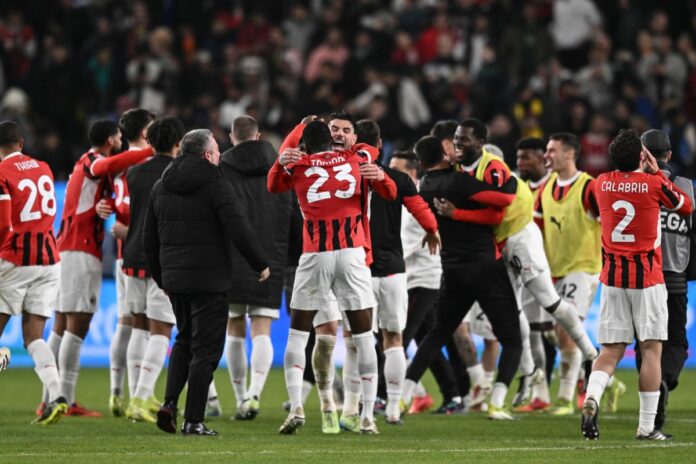The first edition of the new Italian Super Cup, played in Saudi Arabia with a revised 4-team format, goes to the archives with the surprising victory of AC Milan in a spectacular derby against rivals Inter: the 3-2 comeback by the Rossoneri represents a beautiful business card for Italian soccer exported for the occasion to Riyadh. But not all that glitters is gold.
In fact, a lot of gold has entered the coffers of the participating clubs and the Lega Calcio Serie A: the economic aspect is certainly one of the positive notes of the event, organized by the very rich Arab sovereign fund Pif. Going into detail, the economic scope of the event amounted to 25 million euros divided as follows: 2 million respectively to Juventus and Atalanta, the defeated semifinalists, 5 million to the defeated finalist Inter and 8 million to Milan who raised the Cup, to which must be added about 8 million that entered directly into the coffers of the Lega Calcio Serie A.
A lot of money, to repay the “inconvenience” of a few-day Eastern trip. On the field, the spectacle, in the 3 matches played, was certainly not lacking, and this undoubtedly represents the second happy note of the event, which was aimed at exporting a positive image of Italian soccer. Inter-Atalanta was the only one of the 3 matches without goals by both teams and with less than 3 total goals scored, but despite this (and a somewhat’ too exaggerated turnover by Gasperini in the beginning) even Dea had, especially in the second half, several goal balls and the show was certainly not lacking. Both Juventus-Milan and Inter-Milan, on the other hand, provided excitement, goals and reversals on the field, again thanks to the Rossoneri of the newly appointed coach Conceicao, who arrived feverishly on the eve of his departure for Riyadh to replace the exonerated Fonseca.
It is Milan that is the big surprise and the undisputed star of the Super Cup, with its indomitable character and ability to come back from a goal down to Motta’s Juventus and even two to Inzaghi’s Inter, the stuff of a thousand and one nights, to stay in the East. What was miserably lacking was the spectacle in the stands: perhaps the appeal of Serie A is not enough for the Arab world, or perhaps soccer has not yet fully entered the hearts of the Saudis, as the still lukewarm crowd response in the matches of the very rich Saudi league would also show, the fact remains that the best representatives of our soccer neither managed to fill a stadium with a capacity of less than 30,000 seats nor to ignite the few in attendance.
The aquarium effect that characterized the three matches did not do credit to them and took away from the spectacle of the event, because a fundamental component of sports spectacle lies precisely in the stands. Think of the dismal spectacle of sports behind closed doors in the Covid era: on that occasion television broadcasters had gone so far as to invent artificially added sound effects to cover the silence of the empty stands.
A sports show does not differ from a theater show: in both cases they are unique and unrepeatable events that owe their success to a variety of factors, including audience response. A stand-up comedy show at the theater, for example, lives on the jokes of the comedian as well as the laughter of the audience; if one of the components is missing, the sense of sadness is inevitable.
The article The Super Cup in Riyadh goes to Milan: so much money and so little audience, the balance of a half-successful event comes from TheNewyorker.

